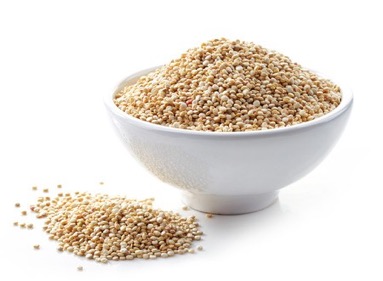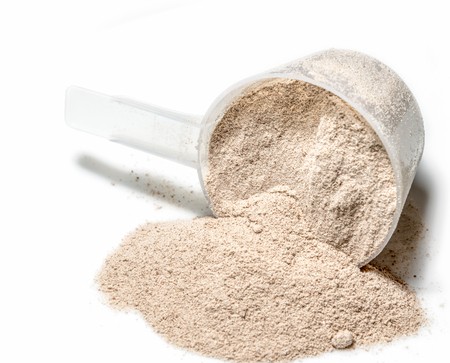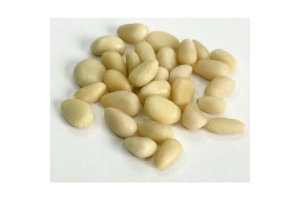Unlocking the Health Benefits of Quinoa Protein

Unlocking the Health Benefits of Quinoa Protein
Quinoa protein, derived from the ancient grain quinoa, offers a spectrum of health advantages. In this exploration, we uncover the top five benefits of incorporating quinoa protein into your diet.
Understanding Quinoa Protein
Quinoa protein, often overshadowed by its carbohydrate-rich counterpart, is a complete protein source. It boasts all nine essential amino acids, making it an exceptional choice for those seeking protein-packed plant-based options.
Muscle Building and Repair
Quinoa protein is a rich source of amino acids, including leucine, which plays a pivotal role in muscle protein synthesis. Whether you're an athlete looking to enhance performance or someone striving for lean muscle, quinoa protein can be an ally in your journey.
Quinoa protein's leucine content is crucial for muscle development and repair. Leucine triggers muscle protein synthesis, promoting growth and recovery. This makes it a valuable component in the diet of individuals engaged in physical activities, as well as those focused on maintaining muscle strength and functionality.
Weight Management
Protein is renowned for its satiating effect. Quinoa protein, with its completeness and high protein content, can help curb appetite and support weight management. Its fiber content also aids in regulating hunger and promoting a sense of fullness.
The satiating nature of quinoa protein makes it a potent tool for weight management. Its rich protein content keeps hunger at bay, reducing the likelihood of overeating. Additionally, the fiber content contributes to prolonged feelings of fullness, ultimately helping individuals maintain or achieve their desired weight.
Heart Health
The heart-healthy nature of quinoa protein stems from its low saturated fat content and cholesterol-reducing properties. It's an ally in maintaining cardiovascular health by reducing the risk of heart disease.
Quinoa protein supports heart health through multiple mechanisms. Its low saturated fat content helps in managing cholesterol levels, which is pivotal for cardiovascular well-being. By incorporating quinoa protein into your diet, you're making a conscious choice to reduce heart disease risk and support long-term heart health.
Nutrient Density
Quinoa protein isn't just about protein. It's a powerhouse of nutrients, including magnesium, potassium, and iron. These minerals contribute to overall health, aiding functions such as muscle contraction, blood pressure regulation, and oxygen transport.
The nutrient density of quinoa protein extends beyond protein content. It's packed with essential minerals that play crucial roles in the body. Magnesium is essential for muscle function and energy metabolism, while potassium is vital for regulating blood pressure. Iron, on the other hand, supports oxygen transport in the blood. Incorporating quinoa protein ensures you're receiving a plethora of essential nutrients for optimal health.
Enhanced Digestion
The fiber content in quinoa protein is a boon for digestive health. It aids in regular bowel movements, prevents constipation, and promotes a balanced gut environment. Incorporating quinoa protein can support a well-functioning digestive system.
Quinoa protein's fiber content is a key player in digestive health. It promotes regular bowel movements, reduces the risk of constipation, and fosters a balanced gut environment. A well-functioning digestive system is essential for overall health and well-being. By integrating quinoa protein into your diet, you're making a positive choice for digestive comfort.
Improved Bone Health
The presence of essential minerals like magnesium and phosphorus in quinoa protein contributes to bone health. These minerals are vital for bone structure and strength, reducing the risk of conditions like osteoporosis.
Quinoa protein's mineral content is instrumental in promoting bone health. Magnesium and phosphorus are crucial for maintaining bone structure and strength. They aid in the prevention of bone-related conditions like osteoporosis. Incorporating quinoa protein into your diet provides essential nutrients for strong and healthy bones.
Skin Vitality
Amino acids in quinoa protein, particularly lysine, are essential for collagen formation. Collagen is the building block of healthy skin, and quinoa protein can aid in maintaining skin vitality and elasticity.
Quinoa protein's amino acids, especially lysine, are pivotal for skin vitality. Collagen, the primary structural protein in the skin, relies on lysine for its formation. Adequate collagen production ensures skin elasticity and a youthful appearance. By including quinoa protein in your diet, you're contributing to the health and vibrancy of your skin.
Conclusion
In conclusion, quinoa protein offers a range of health benefits, making it a valuable addition to your diet. It supports muscle building, aids in weight management, promotes heart health, offers essential nutrients, enhances digestion, and contributes to improved bone health and skin vitality. Embrace the benefits of quinoa protein and experience its remarkable potential.




 Over 500 health and wellness products
Over 500 health and wellness products Everyday savings and weekly promotions
Everyday savings and weekly promotions The best natural and organic produce from around the world
The best natural and organic produce from around the world Committed to you - over 10 years of trusted service
Committed to you - over 10 years of trusted service



